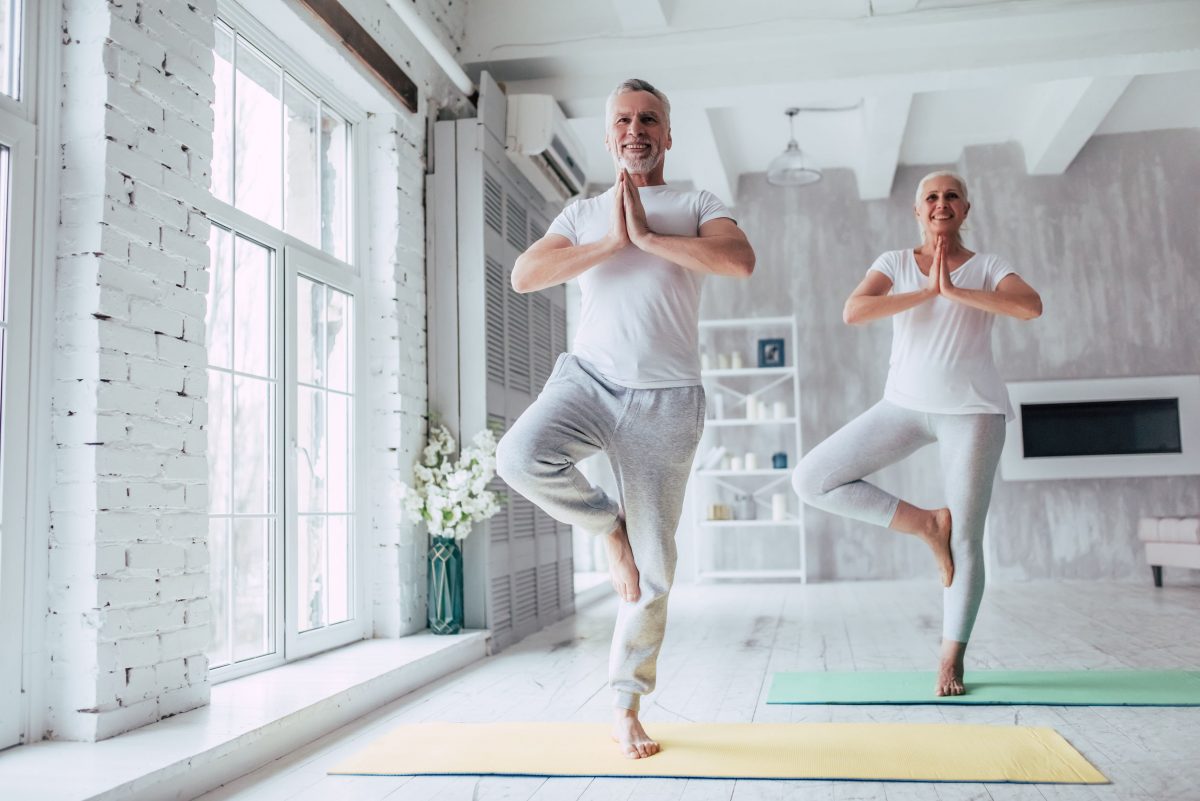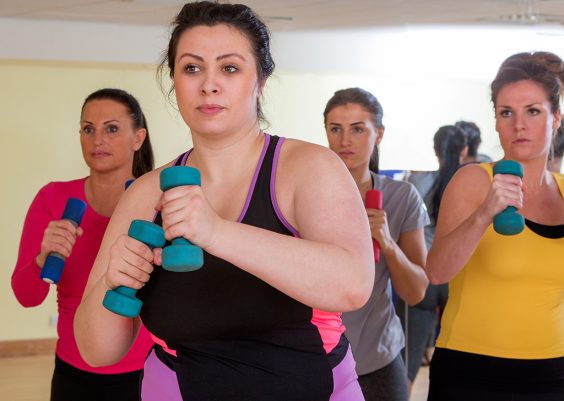
Photo: Twenty20
Turns out, there’s more to yoga than flattering pants and downward-facing dog. Beyond learning the poses, there are a host of other factors that can make or break your practice, from the proper gear to your mindset while you flow. To help you enjoy your yoga class even more, we tapped two experts to identify the common mistakes you might be making, plus tips on how to fix them. A fresh new path to calm awaits.
RELATED: 50 Resources to Step Up Your Yoga Game
6 Common Yoga Class Mistakes and How to Fix ‘Em
1. You show up late.
Your friends may forgive you for being a few minutes late for social plans, but showing up after yoga class starts is another story. If you’re brand-new to a studio, budget an extra 10 to 15 minutes to fill out any necessary paperwork and meet the instructor, says Sage Rountree, yoga instructor, endurance sports coach and author of Everyday Yoga. “We want to have enough time to give you a warm welcome, and if you’re sliding in two minutes before class, it’s sets a negative tone,” she says.
Even if you’ve been practicing yoga for years, showing up a few minutes early gives you time to transition from daily life to yoga practice. Plus, then you have the opportunity to let the instructor know if you’re feeling any pain or discomfort. It’s better for instructors to know of injuries beforehand, Rountree says, so they can offer modifications whenever necessary throughout the practice.
2. You bring the wrong mat.
It’s not uncommon for new students to bring foam or plastic mats to class, which may be great for activities like foam rolling or Pilates. But for yoga, they can make flowing from pose to pose a little more difficult. According to Heather Peterson, chief yoga officer at CorePower Yoga, these types of mats cause students to slip all over the place, making it hard to balance or hold poses, especially once the sweating starts. “Learning yoga is tough enough to begin with,” she says, “so the type of mat you use can be a huge advantage.”
Peterson’s go-to mats include Lululemon’s The Mat for hot classes, and Manduka ones for non-heated practice. “They’re heavy but totally worth it for the benefit of slip resistance,” Peterson says. For added insurance, keep a yoga towel, like those from Yogitoes, nearby to place on top of your mat.
RELATED: How to Gear Up for Your Yoga Practice
3. You try too hard.
“Get happily lost in the middle [of the room].”
There’s a time and place for pushing your effort to 110 percent, but yoga class isn’t it. “People try to step into the class midstream,” Rountree says. “They try to follow along with every single iteration, everything the teacher mentions, and generally, that leads to overdoing it.”
Just like you wouldn’t go out and run 20 miles on your first day of training, you don’t need to try to master every pose during your first class. It’s OK to do the gentler variations of each posture, and take as many breaks as you need. “Smart rest breaks will help your body recover faster, which is the true measure of fitness,” Peterson says. “Rest whenever you need to in child’s pose or savasana and then join back in when you’re able.”
Keep in mind, if you try to force a pose that’s beyond your current range of motion and flexibility, you may wind up hurt. “Then you’ll miss out on the opportunity to actually connect with yoga,” Rountree says.
Finally, if you’re tempted to compare yourself to the other students in the room, just know that some may have been practicing yoga for years. Or, they could even teach yoga themselves. So go with your own flow and don’t worry about what others are doing.
4. You hide in the back of the room.
When you’re new to a class or studio, it’s tempting to set up camp in the back of the room where no one can see you. But sometimes, the back of the room becomes the front. And more importantly, it’s tough to see the teacher from the back and therefore, harder to follow along, Rountree says.
Instead of hiding, roll out your mat in the center of the room, if possible. This way, no matter what direction the class faces, you’ll always have a visual. “Get happily lost in the middle and you’ll get good examples all around you,” Rountree says.
RELATED: The Beginner’s Guide to Every Type of Yoga Out There
5. You wear the wrong clothes.
According to Peterson, many students show up for class wearing layers or loose clothes that inhibit their movements. This makes it difficult to see the position of their bodies in the mirror (or for instructors to notice). “Remember that your clothes are your gear,” she says, “and you want to be able to see your joints to make optimal alignment upgrades.” That might mean dropping your hips a bit in a plank or bending your knee more in warrior II.
For heated classes, Peterson recommends looking for a technical fabric that will wick sweat, while also allowing your skin to breathe. “Sometimes that means a sports bra instead of a tank top,” Rountree says, adding that the studio culture can vary from place to place. “It’s worth poking around on their website or calling and asking the front desk what people usually wear,” she suggests. Feeling self-conscious? Take a cue from these inspirational yogis: Every body is a yoga body.
6. You hold your breath.
When your instructor calls attention to breathing, listen up. Take notice if you’re inhaling and exhaling normally or if you’re actually holding your breath. If you’re not taking in air regularly, you could be hindering your practice, says Rountree. Your flow should have plenty of ease to it, and when you hold your breath, you actually increase your fight-or-flight response, which can cause you to feel more anxious by the end of class, Rountree adds.
If you find yourself holding your breath — or even open-mouth breathing — dial back the intensity until you can take air in and out through your nostrils, Peterson says. “This increases the amount of breath you get into the bottom lobes of your lungs and increases the oxygen in your system to help with recovery,” she explains. Now, close your eyes and take a big inhale and exhale. It’s time for a calm, cool yoga session.
Read More
15 Stretches You Should Do Every Damn Day
8 Yoga Poses to Help Ease Lower Back Pain
Are You Doing These Yoga Poses All Wrong?





